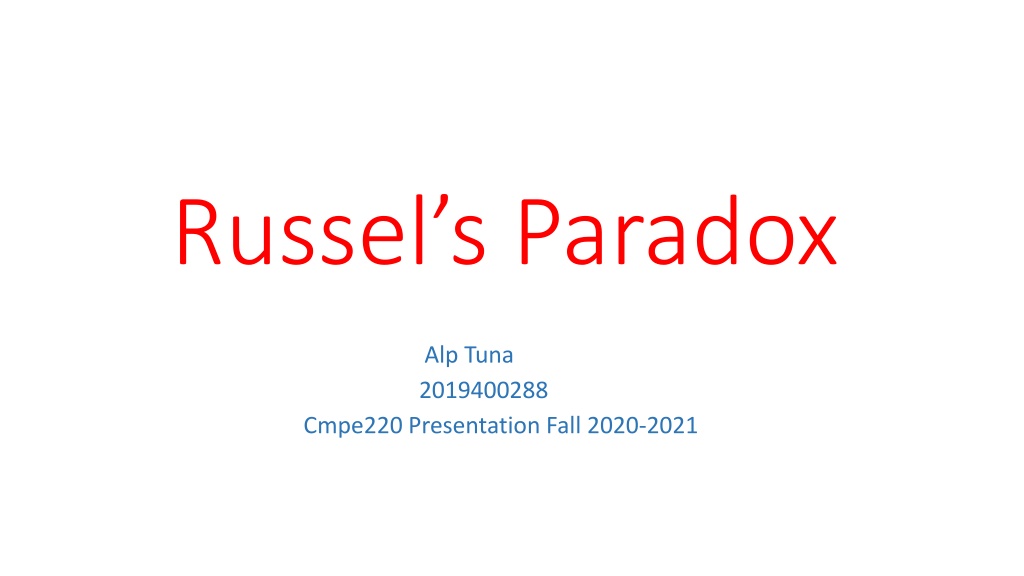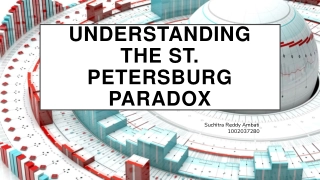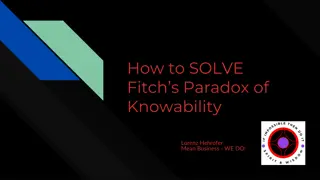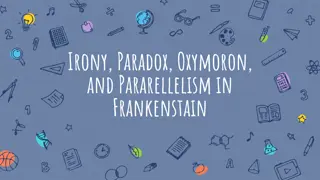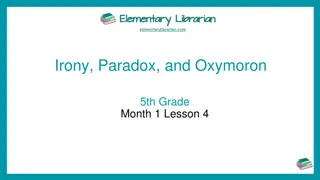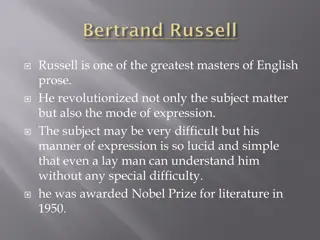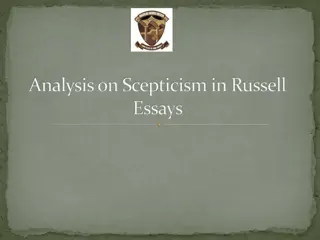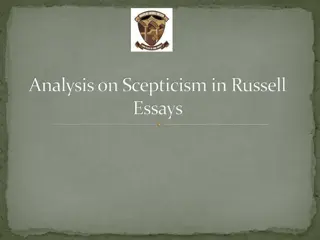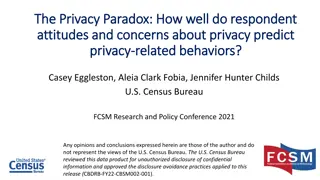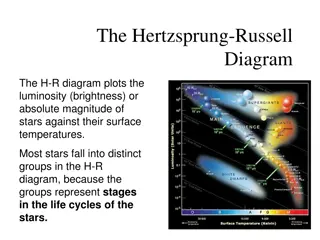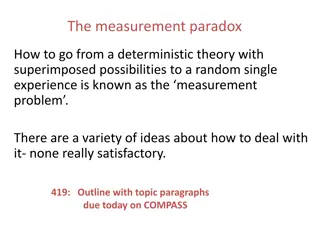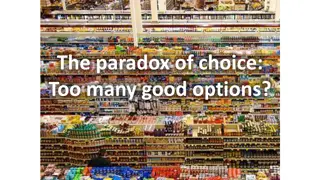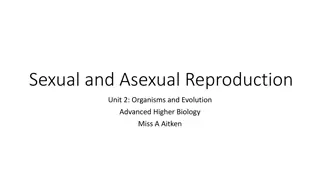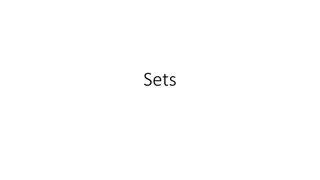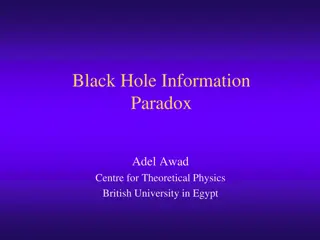Understanding Russell's Paradox: A Dive into Set Theory
Delve into Russell's Paradox, a foundational issue in mathematics arising from naive set theory. Explore how the paradox challenges the notion of definable collections as sets, ultimately leading to the development of advanced solutions in set theory such as the ZFC axioms and the Axiom of Separation. Discover the implications of this paradox on mathematical logic and the necessity of rigorous set theory in mathematics.
Uploaded on Sep 20, 2024 | 0 Views
Download Presentation

Please find below an Image/Link to download the presentation.
The content on the website is provided AS IS for your information and personal use only. It may not be sold, licensed, or shared on other websites without obtaining consent from the author. Download presentation by click this link. If you encounter any issues during the download, it is possible that the publisher has removed the file from their server.
E N D
Presentation Transcript
Russels Paradox Alp Tuna 2019400288 Cmpe220 Presentation Fall 2020-2021
Root of the Problem According to naive set theory, any definable collection is a set. Now, consider the set below: S = {A | A is a set and A A } K = Set of all people , K S M = Set of all books , M S 1 S
Reaching to the Paradox Question: Is the set S under discussion a member of itself? Assume S S, then definition of S requires S S. Hence, S S S S Assume that S S, then definition of S requires S S. Hence, S S S S. S S S S. Paradox!! Did mathematics collapse? Cannot we trust mathematics anymore?
What was the problem? Our assumption that any definable collection is a set has led to a contradiction. We must abandon that notion. There are advanced ways to solve this problem in set theory such as ZFC axioms. Mathematical logic and set theory is not for fun, they are necessary for mathematics.
An Elementery Solution We come up with an axiom called Axiom of Seperation to overcome the paradox. (Brilliant Idea) Axiom of Separation. Given a set X and a property P, there is a set whose elements are the elements of X that have property P. That is, {x | x X and P(x)} is a set. Assume that X is a set. Then, S = {A X | A is a set and A A} Now we don t have a paradox. S is a set, S S , S X.
References https://en.wikipedia.org/wiki/Russell%27s_paradox https://plato.stanford.edu/entries/russell-paradox/ L. J. Gerstein, Introduction to Mathematical Structures and Proofs
